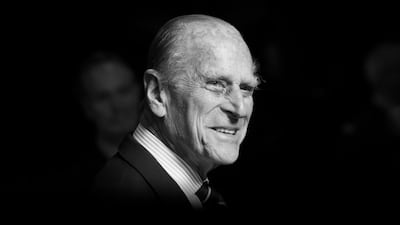Britain's Prince Philip, the husband of Queen Elizabeth II, died on Friday. He was 99 years old.
He was the longest-serving royal consort in British history. Born in Corfu into the Greek and Danish royal families, Prince Philip, who had four older sisters, was sixth in line to the Greek throne.
Despite being born into a world of privilege, his childhood was mired in tragedy.
When he was an infant, his father, Prince Andrew of Greece and Denmark, was accused of treason and exiled from Greece.
The family were forced to flee to France where more sadness ensued.
His mother, Princess Alice of Battenberg, was forcibly committed to a psychiatric institute when he was only nine.
It led to his father closing their family home and for the next five years the young Prince Philip was brought up in Britain by his mother’s family, the Milford Havens and Mountbattens, and placed in boarding schools.
More turmoil followed when his pregnant sister was killed in a plane crash when he was 16.
Speaking of his childhood, he once said: “It’s simply what happened. The family broke up. My mother was ill, my sisters were married, my father was in the south of France. I just had to get on with it. You do. One does.”
He joined the British Royal Navy in 1939 aged 18 and became one of the youngest first lieutenants at 21.
It was in this role that he first met his future wife when she was 13 and the pair began corresponding.
During the Allied invasion of Sicily in 1943, while a first lieutenant on HMS Wallace, Prince Philip earned the lifelong respect of the military when his heroism saved the lives of the crew.
Destined for certain doom in an impending night bombing raid, Prince Philip managed to foil a Luftwaffe attack when his quick thinking led to him ordering the launch of a raft with smoke floats to distract the bombers, enabling the ship to escape unnoticed.
His courtship of the future Queen Elizabeth continued and her father, King George VI, granted the pair permission to wed after the war, once she was 21.
Before the announcement of their engagement in 1947, Prince Philip renounced his Greek and Danish royal titles, became a British citizen and adopted his maternal grandparents’ surname, Mountbatten.
The king then bestowed on him the title of Duke of Edinburgh before his wedding to Princess Elizabeth on November 20, 1947.
Ten years later he was formally made a British prince.
The couple had four children together: Prince Charles, Princess Anne, Prince Andrew and Prince Edward.
Just five years after their marriage Elizabeth became queen, in 1952.
Their marriage was the longest of any British monarch and in 2017 they celebrated their 70th wedding anniversary.
In 1956, Prince Philip founded the Duke of Edinburgh Award scheme to encourage youngsters to help their communities.
Over the ensuing decades, he became the patron, president or member of almost 800 charities and organisations, many of which reflected his interests, which included conservation, sport, the military and engineering.
He continued to be associated with the groups until his death but during the last few years of his life he no longer played an active role in attending engagements.
After a string of short illnesses and hospital stays, he took the decision to step down from public duties in May 2017.
At his final official public engagement he met Royal Marines.
The UK former prime minister Theresa May thanked him for a "remarkable lifetime of service" in which he undertook more than 22,200 solo engagements.
Despite withdrawing from public life, he still hit the headlines when, aged 97, he was involved in a car crash near the Sandringham Estate, which left passengers in the other car injured.
It led to him issuing an apology and surrendering his driving licence. But he was still allowed to drive on his private estates and was pictured behind the wheel before his death.
In recent years, he has had a number of hospital stays.
His latest was at the King Edward VII Hospital in London where he was treated fand transferred to St Bartholomew's for heart surgery
He spent Christmas 2011 in hospital after an operation to clear a blocked artery in his heart.
In 2012, he spent time in hospital with a bladder infection and in 2013 underwent "an exploratory operation following abdominal investigations". He was admitted to hospital in 2017 for treatment of a pre-existing condition. He had a hip replacement last year resulting in a 10-day hospital stay.
Prince Philip was the oldest man in the British royal family and is the third longest living royal behind Princess Alice, Duchess of Gloucester, who lived to be 102, and Queen Elizabeth, the Queen Mother, who died aged 101.


